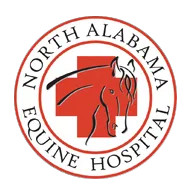Due to the recent outbreak of EHV-1 in TN, KY & now Colorado, NAEH has decided to offer a new vaccination program to offer the best protection possible for our patients. We will now be offering the EWTWN/Flu Vaccine (Eastern & Western Encephalitis, Tetanus Toxoid, West Nile & Flu) & the Prodigy Vaccine (Protects against the Respiratory form of Rhino). There is still no vaccine that protects against the neurologic form of Rhino. As always, we suggest the Rabies & Intranasal Strangles vaccine as part of your vaccine program. Please contact the NAEH office at 256-771-1590 to schedule an appointment to get your horse vaccinated if you have not done so already. We are recommending that any trails rides or other public events be postponed or participate at your own risk. For more information regarding EHV-1 please refer to the links below or contact the office:
http://www.thehorse.com/ViewArticle.aspx?ID=20000&src=topic
http://www.bucksnorttrailride.com/
Suspected EHV-1 Reported in Tennessee
The Tennessee Department of Agriculture (TDA) has received reports of suspected cases of equine herpesvirus (EHV-1) infection in horses that participated in a recent trail ride in Tennessee.
Six to eight suspected cases of the neurological form of EHV-1 have been reported to the state veterinarian's office. Horses are being treated, isolated, and monitored by their attending veterinarian.
The affected horses might have been exposed to EHV-1 during the Bucksnort Trail Ride, held April 23-30 in Humphreys County. The event drew approximately 100 horses from multiple states. The movement of horses that attended the event is being restricted on a case by case basis.
TDA animal health officials are working with event organizers, neighboring state veterinarians, and private veterinarians to identify other horses that may have been exposed or are exhibiting clinical signs of disease.
As a precaution, State Veterinarian Charles Hatcher, DVM, recommends horse owners who participated in the Bucksnort event work with their veterinarian to restrict movement and to monitor their horses. Hatcher also recommends that isolation and monitoring horses for 28 days if any clinical signs of disease are observed. Veterinarians should report suspected or confirmed neurological cases of EHV-1 to the State Veterinarian's office at 615/837-5120.
Although it's not transmissible to humans, EHV-1 is highly contagious among horses and camelids, and it is generally passed from horse to horse via aerosol transmission (when affected animals sneeze/cough) and contact with nasal secretions. The disease can cause a variety of ailments in equines, including rhinopneumonitis (a respiratory disease usually found in young horses), abortion in broodmares, and myeloencephalopathy (EHM, the neurologic form).
Myeloencephalopathy is characterized by fever, ataxia (incoordination), weakness or paralysis of the hind limbs, and incontinence. Should a horse with potential EHV-1 exposure display any of the aforementioned clinical signs, a veterinarian should be called to obtain samples and test for the disease.
Article from thehorse.com



